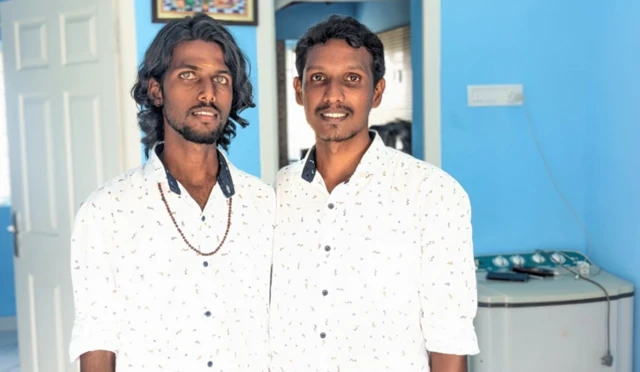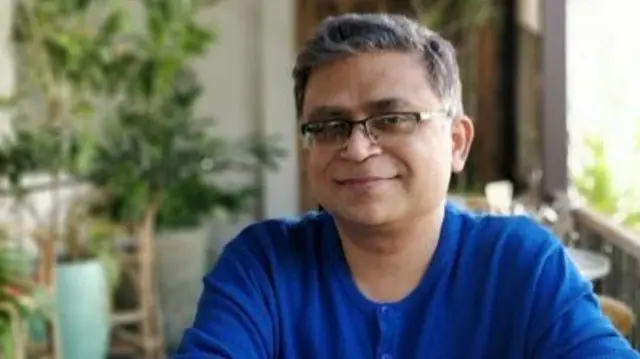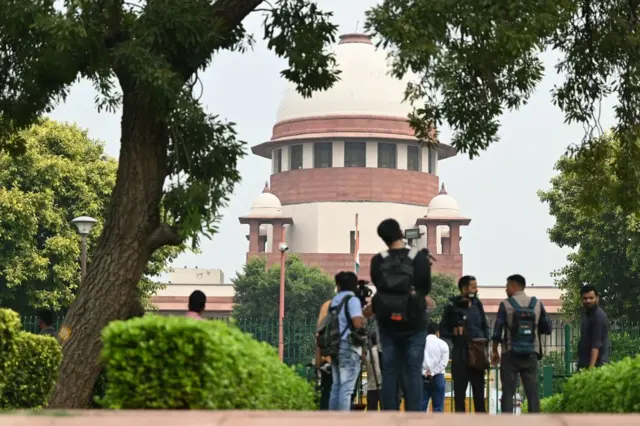Thank you for joining uspublished at 12:47 BST 17 October 2023
We're now wrapping up our live coverage of the same-sex marriage ruling. But we'll continue to bring you more on this story - for starters, here's a comprehensive piece that unpacks the events of this day.
This page was brought to you by reporters in India including Zoya Mateen, Meryl Sebastian, Cherylann Mollan, Nikhila Henry, Devang Shah, Nikita Mandhani, Antariksh Jain, Anshul Verma, Bimal Thankachan, Soutik Biswas, Samira Hussain, Divya Arya, Suchitra Mohanty and Umang Poddar. It was edited by Geeta Pandey, Sharanya Hrishikesh and Vikas Pandey.


